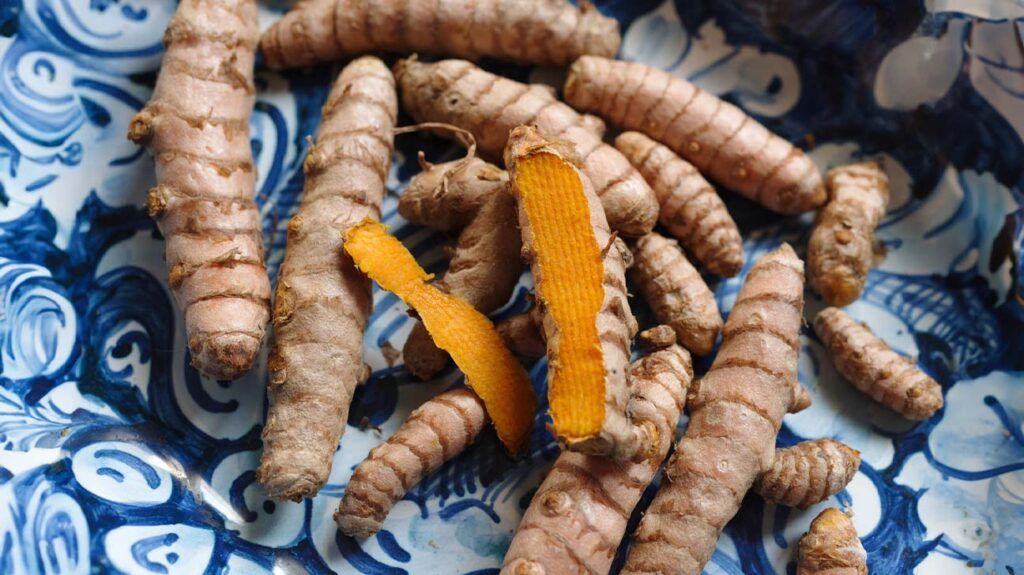Some people use turmeric as an herbal remedy or in food to reduce inflammation. Limited evidence supports its use for bronchitis symptoms, but it may help alongside more conventional treatments.
Bronchitis is inflammation of the airways in the lungs. Treatment involves managing symptoms such as coughing and sore throat while inflammation passes.
Some forms of bronchitis become ongoing as part of chronic obstructive pulmonary disease (COPD) and may need more intensive or ongoing treatment.
However, some people may choose to take turmeric alongside conventional medications to reduce its effects. Turmeric is a spice containing curcumin, a compound that has shown potential to reduce inflammation and work against microbes in test tube studies.
This article looks at the possible benefits of taking turmeric to manage bronchitis symptoms.

Few studies have directly examined how turmeric works for people with bronchitis. A
However, curcumin has shown promising effects on a range of processes that relate to bronchitis.
Reducing inflammation
In India, practitioners of Ayurvedic medicine have used turmeric to treat inflammatory diseases for hundreds of years, according to a
The review suggests that curcumin helps reduce inflammation in the body by controlling certain communication pathways that trigger inflammation. They may also block the creation of substances that promote inflammation, known as inflammatory mediators.
Bronchitis is inflammation of the airways that occurs in response to a viral or,
By reducing inflammation, turmeric might soothe the effects of bronchitis. However, no study has directly examined this.
Countering viruses and bacteria
A
Although the review does not name bronchitis, it is one such condition that may occur in response to infection by influenza, RSV, and other viruses. It is not yet clear whether this would cause bronchitis to resolve sooner and reduce the impact of symptoms, and more studies on humans are necessary.
Improving airway obstruction
One of the main compounds in turmeric might help people with bronchitis breathe more easily. A small, earlier
The researchers tested the breathing efficiency of 77 people using a forced expiratory volume 1 (FEV1) test. Some took curcumin capsules as well as standard treatments for bronchial asthma, while others just received standard treatments. Those taking curcumin capsules showed FEV1 results that were significantly higher than those just receiving standard bronchial asthma treatment.
This study used a concentrated dose of curcumin rather than whole turmeric and focused on a small sample. However, it does suggest another way that turmeric’s ingredients might help people with bronchitis.
There are no guidelines for using turmeric as a bronchitis treatment. Bronchitis generally resolves without active treatment in
People can eat turmeric whole in meals, smoothies, or health shots. It is also available in capsule form. The World Health Organization (WHO) recommends that a safe and acceptable turmeric intake is
Eating turmeric in the diet provides much less curcumin than extracts. According to a
It is best to speak with a healthcare professional about using any herbal supplement before adding them to a treatment plan.
Treatment for bronchitis generally involves treating symptoms while the virus passes. Several medications can help to reduce bronchitis symptoms,
- antitussive agents, such as dextromethorphan, which suppress coughing
- beta-agonists to reduce wheezing
- pain relief medications
- medications to reduce fever
- a short course of steroids to reduce inflammation
Medications may not always be necessary for mild symptoms. However, a healthcare professional may prescribe or recommend these for severe or debilitating bronchitis.
Home remedies
Some people may experience symptom relief after taking turmeric, but clinical trials have not taken place to determine the benefits of any herbal remedy for bronchitis. Other remedies to soothe a sore throat and reduce coughing might include:
- hot tea with honey
- ginger
- throat lozenges
The United Kingdom’s National Health Service (NHS) also recommends:
- resting
- avoiding social contact for those who are not well enough to complete normal activities
- drinking enough fluids
- regularly washing the hands to reduce the risk of spreading bronchitis to others
- avoiding smoking
People with mild to moderate bronchitis may be able to manage symptoms at home without seeking medical attention. However, people should seek treatment if any of the following apply:
- Symptoms occur for 3 weeks or longer.
- Coughing brings up blood or mucus filled with blood.
- Chest pain also occurs, either on and off, while breathing, or during coughing.
- They are over 65 years of age.
- They have chronic conditions such as diabetes or heart, lung, or kidney disease.
- They have a weaker immune system, for example, due to chemotherapy.
- Symptoms are severe.
The following are answers to some questions people frequently ask about bronchitis.
Is turmeric good for chest infections?
Some research has found that turmeric may
What is a natural antibiotic for bronchitis?
No recent research has confirmed that any herbal or natural option can treat an underlying infection that causes bronchitis.
How do you get rid of bronchitis fast?
There is no evidence that a single treatment can speed up bronchitis recovery, but
Turmeric has shown some anti-inflammatory, antimicrobial, and airway-clearing properties in small, limited studies that could help with certain aspects of bronchitis. People can consume it in their diet or take capsules, but it is important to seek the advice of a healthcare professional before adding herbal remedies to a treatment plan.
Bronchitis generally resolves in 1–3 weeks without treatment. However, medications, home remedies, rest, and fluids can help reduce coughing, fever, and discomfort while a person recovers from bronchitis.
